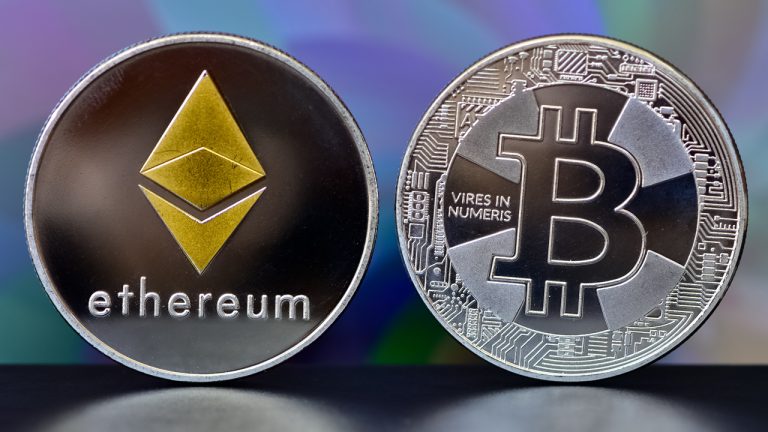
Lately, the crypto sphere, with bitcoin aficionados in particular, has been buzzing with chatter about the fees pocketed by BTC miners. They’re pondering if these fees will adequately offset the impending 2024 halving and the accompanying drop in revenue. On the other hand, Ethereum, the runner-up in the crypto world, is raking in significantly higher weekly fees. Here’s an insight into the leading blockchain networks and where users are truly shelling out for block space.
Bitcoin Proponents Discuss the 2 Leading Blockchains and Transfer Fees
Many of today’s leading blockchain networks come with transfer fees, designed to motivate miners or validators to oversee and validate transactions, fortifying the network. Besides ensuring security, these fees deter spam, prioritize transactions, and cater to distinct economic policies based on each blockchain’s consensus guidelines.
In the Bitcoin realm, when miners discover a block, they’re rewarded with the fees associated with that particular block. There’s a prevailing sentiment that, for Bitcoin’s security to remain robust after multiple halvings, its fees might need an uptick.
Yet, if there’s a surge in user adoption and peer-to-peer interactions, fees could potentially be reduced. However, this assumes the network can seamlessly scale to meet such intense demand.
This week, the crypto community has been abuzz with chatter about BTC fees, especially as data indicates Ethereum (ETH) validators are raking in significantly more than BTC miners. Dive into archived stats from cryptofees.info on September 9, and you’ll find that in the past week, ETH validators bagged around $3.54 million in fees.
In contrast, BTC miners amassed just $694,632. Crunch the numbers, and ETH’s fees were 5.1 times higher than BTC’s. But here’s an intriguing throwback: two years ago, just before BTC’s and ETH’s record highs, Bitcoin ranked sixth in the fee league.
3 months ago high fees were going to be the end of #BTC, now low fees are going to be the end of BTC. https://t.co/dBGC9RTTqS
— DAX Skywalker (@DAX_Skywalker) September 7, 2023
During the week of September 27, 2021, BTC miners gathered $548,425 within seven days, while ETH hit a staggering $24.16 million. That means, back in that 2021 week, ETH’s fees overshadowed BTC’s by an astonishing 44.1 times.
Fast forward to this week, BTC bagged the silver medal for seven-day fees, with Uniswap trailing at $519,144 and BNB chain logging $242,101. Over the past month, of the massive $807.01 million revenue BTC miners generated, a mere 2.13% came from fees.
But the last nine days paint a rosier picture: BTC miners have witnessed an average fee intake of 2.91% relative to the reward subsidy, marking an uptick since September 1, 2023. On September 7, 2023, the X account, known as “Fiatjaf” and boasting 18,600 followers, sparked a conversation by querying opinions on data from cryptofees.info.
Fiatjaf’s post on X showed the data from cryptofees.info and how Ethereum’s seven-day fees were much higher. “What is your honest take on this?” he asked. Coinkite’s founder, Rodolfo Novak, weighed in, asserting, “Bitcoin is more efficient at transporting value.” Joel Valenzuela, a crypto aficionado, countered, stating, “Ethereum is the top cryptocurrency right now.”
Honest take: Bitcoin settles an order of magnitude more value at a fraction of the cost. https://t.co/Ern9i1W77J
— Unhosted Marcellus #371 (@oomahq) September 7, 2023
John Carvalho expressed skepticism about the fee comparison on cryptofees.info, quipping, “You may as well add Apple and Visa and Twitter and JPMorgan and every other centralized thing to your Bitcoin FUD list.”
Engaging with Carvalho’s critique, Fiatjaf retorted, “So you think Bitcoin is losing to Ethereum as much as it is losing to Apple and Visa?” Ethereum advocates in the discussion defended high fees as a testament to the robustness of the smart contract-driven blockchain.
Adding another perspective, Cobra Bitcoin, the mysterious curator of Bitcoin.org, commented, “We should be grateful Ethereum didn’t adopt SHA256 as its mining algorithm.” He elaborated, “Miner incentives will always be influenced not just by activity within Bitcoin, but also outside of it. If more profitable SHA256 sh**coins appear, miners would be stupid to not go mine them.”
What do you think about ethereum validators obtaining more in fees than bitcoin miners? Share your thoughts and opinions about this subject in the comments section below.
#Featured, #7dayBitcoinFees, #Bitcoin, #BitcoinFees, #Bitcoinorg, #Blockchain, #BTCFees, #CobraBitcoin, #Coinkite, #Cryptofeesinfo, #ETHFees, #Ethereum, #EthereumFees, #FeeCollection, #FeeMarket, #Fees, #Fiatjaf, #JoelValenzuela, #JohnCarvalho, #MinerIncentives, #MiningAlgorithm, #RodolfoNovak, #SHA256, #SmartContracts, #TransferFees